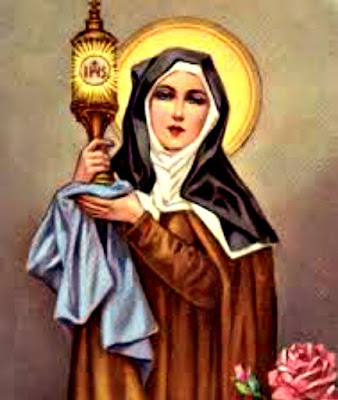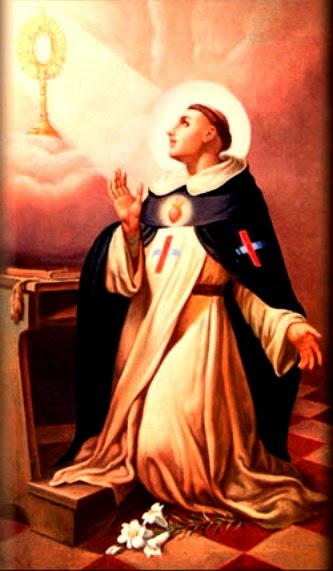St. Elizabeth Ann Seton
 This first native-born American saint was born on August 28, 1774 in New York to a wealthy and distinguished Episcopalian family. Elizabeth Ann Seton was born Elizabeth Ann Bailey, the daughter of Dr. Richard Bayley, the first professor of anatomy at Columbia College, and Catherine Charlton, daughter of an Anglican minister. By birth and marriage, she was linked to the prominent families of New York and enjoyed the luxuries of high society.
This first native-born American saint was born on August 28, 1774 in New York to a wealthy and distinguished Episcopalian family. Elizabeth Ann Seton was born Elizabeth Ann Bailey, the daughter of Dr. Richard Bayley, the first professor of anatomy at Columbia College, and Catherine Charlton, daughter of an Anglican minister. By birth and marriage, she was linked to the prominent families of New York and enjoyed the luxuries of high society.However, tragedies early on in her life made her acutely aware of the temporariness of life here on earth. Elizabeth's birth mother died when Elizabeth was only three years old and her younger sister died a year later. Elizabeth became a fervently religious Episcopalian -- she read the Bible frequently and often wore a crucifix around her neck.
At nineteen years of age she married William Seton, the son of a wealthy shipping family. She was very happy in her marriage and the couple had five children. Elizabeth developed a close friendship with her sister-in-law Rebecca Seton. Together, they went about on missions of mercy and became known as the "Protestant Sisters of Charity."
Elizabeth was content -- her family was financially secure and healthy, her marriage was going well, and she was doing the Lord's work.
Then, everything began to change after 1800. About ten years into their marriage, the family shipping business failed, reducing them to near poverty. Then William contracted tuberculosis. Elizabeth tried to bolster their courage and reorient the family to a humbler life.
In 1803 they went to Pisa, Italy in order to help William to recover in a milder climate but were detained in a cold stone tower in the harbor used to quarantine immigrants with contagious diseases. William's health deteriorated and he died a month later. The Filicchi family, former business associates, welcomed Elizabeth warmly. They introduced her to Catholicism and she began attending Mass with them. She quickly fell in love with the Church and realized that this is where she belonged. When she returned to New York, Elizabeth converted to Catholicism, entering the Church on March 14, 1805.
Her family disapproved of her conversion, shunning her socially and financially. She started a boarding house and a school to serve poor Catholic immigrants and to support herself and her five small children. It soon failed when her friends would not help her. Undaunted, she sought other ways on continue her work.
Elizabeth soon met a priest, Fr. William Dubourg, and solicited his help so that she could continue her ministry of teaching. He introduced her to Bishop John Carroll of Baltimore. Her belief in the need for schools was so convincing and she was so persistent that they invited her to come to Baltimore and open a small school.
She also founded a religious order, the Sisters of Charity, and moved to Emmitsburg, MD where she lived with her five children, ten sisters and two students in a spartan, four room house. They had little income, but the work prospered. They began a parish school considered the beginning of the Catholic school system in the U.S.
Their lives, balanced between work, prayer, and recreation were hard and the winters were grueling. Two of Elizabeth's daughters and some of the sisters died, but she continued her work until she died on January 4, 1821. By the time of Elizabeth’s death, there were some 20 communities established. She was canonized by Pope Paul VI in 1975.
Quotes:
"We must pray without ceasing, in every occurrence and employment of our lives - that prayer which is rather a habit of lifting up the heart to God as in a constant communication with Him."
"The first end I propose in our daily work is to do the will of God; secondly, to do it in the manner he wills it; and thirdly to do it because it is his will. "
"The accidents of life separate us from our dearest friends, butlet us not despair. God is like a looking glass in which souls seeeach other. The more we are united to Him by love, the nearer we are to those who belong to Him."
Related Reading:
Check out The Soul of Saint Elizabeth Seton
A Spiritual Portrait By Fr. Joseph Dirvin, C.M.
on Insight Scoop.




Comments
Post a Comment
Comments are moderated and are published at the blogger's discretion.